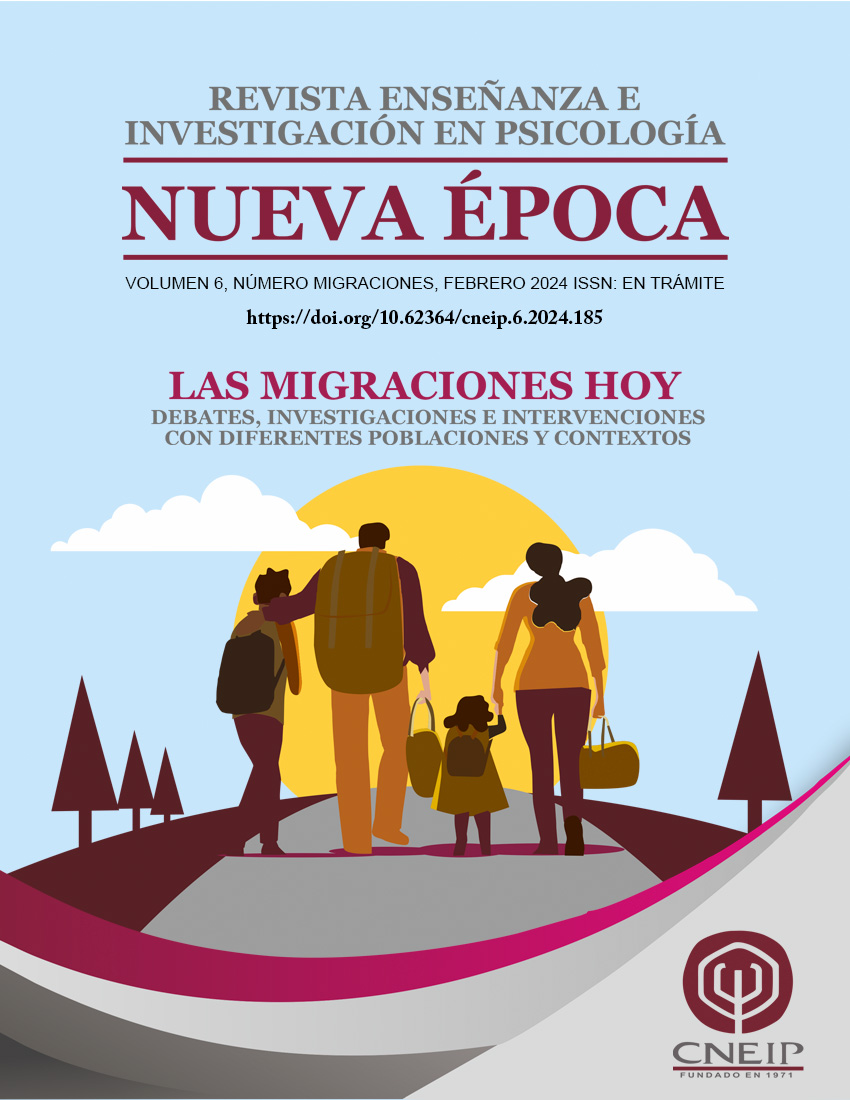Abstract
Health studies on migrant population globally highlights psychological acculturation, which refers to the stress of cultural change during migration. Such stress can affect vulnerable groups’ health. However, measuring this in highly mobile populations is challenging due to scattered scientific evidence. We aimed to identify instruments for assessing psychological acculturation in health studies with Latin participants in the United States, using PRISMA methodology. We found 56 instruments used in diverse health studies between 1978 and 2021, 33 were acculturation scales, five ethnic identity measures and 18 evaluations of migratory status. These instruments explored the relationship between cultural change and health in the Latino Population in the United States. This systematic review offers a comprehensive overview of available tools for future social intervention and research projects in the context of diverse migrations in Latin America.
References
Berry, J. W. (2005). Acculturation: Living successfully in two cultures. International Journal of Intercultural Relations, 29(6), 697–712. https://doi.org/10.1016/j.ijintrel.2005.07.013
Berry, J. W. (2006). Acculturation: A Conceptual Overview. In M. Bornstein & L. Cote (Eds.), Acculturation and parent-child relationships: Measurement and development (pp. 13–30). Routledge.
Berry, J. W. (2011). Integration and multiculturalism: Ways towards Social Solidarity. Papers on Social Representations, 20(1), 2.1-2.21. http://www.psych.lse.ac.uk/psr/
Berry, J. W., & Hou, F. (2017). Acculturation, discrimination and wellbeing among second generation of immigrants in Canada. International Journal of Intercultural Relations, 61, 29–39. https://doi.org/10.1016/j.ijintrel.2017.08.003
Broesch, J., & Hadley, C. (2012). Putting culture back into acculturation: Identifying and overcoming gaps in the definition and measurement of acculturation. The Social Science Journal, 49(3), 375–385. https://doi.org/10.1016/j.soscij.2012.02.004
Camaroff, J., & Camaroff, J. (2013). Teoría desde el sur. O cómo los países centrales evolucionan hacia África. Siglo XXI.
Huynh, Q.L., Howell, R. T., & Benet-Martínez, V. (2009). Reliability of bidimensional acculturation scores: A meta-analysis. Journal of Cross-Cultural Psychology, 40(2), 256–274. https://doi.org/10.1177/0022022108328919
Lara, M., Gamboa, C., Kahramanian, M. I., Morales, L. S., & Hayes- Bautista, D. E. (2005). Acculturation and latino health in the United States: a review of the literature and its sociopolitical context. Annual Review of Public Health, 26(1), 367–397. https://doi.org/10.1146/annurev.publhealth.26.021304.144615
Loue, S. (2006). Measures of Ethnicity, Ethnic Identification, Acculturation and Inmigration Status. En L. Sana (Eds.), Assesing Race, Etniciy and Gender in Health (pp. 119-135). Boston: Springer, MA. https://doi.org/10.1007/978-0-387-32462-3_6
Mancini, T., & Bottura, B. (2014). Acculturation processes and intercultural relations in peripheral and central domains among native Italian and migrant adolescents. An application of the Relative Acculturation Extended Model (RAEM). International Journal of Intercultural Relations, 40, 49–63. doi: 10.1016/j.ijintrel.2013.12.002
Marin, G., & Gamba, R. J. (1996). A new measurement of acculturation for hispanics: The bidimensional acculturation scale for Hispanics (BAS). Hispanic Journal of Behavioral Sciences, 18(3), 297–316. https://doi.org/10.1177/07399863960183002
Mitra, A., & Evansluong, Q. (2019). Narratives of integration: Liminality in migrant acculturation through social media. Technological Forecasting and Social Change, 145, 474- 480. https://doi.org/10.1016/j.techfore.2019.01.011
Page, M. J., Moher, D., Bossuyt, P. M., Boutron, I., Hoffmann, T. C., Mulrow, C. D., Shamseer, L., Tetzlaff, J. M., Akl, E. A., Brennan, S. E., Chou, R., Glanville, J., Grimshaw, J. M., Hróbjartsson, A., Lalu, M. M., Li, T., Loder, E. W., Mayo-Wilson, E., McDonald, S., … McKenzie, J. E. (2021).PRISMA 2020 explanation and elaboration: Updated guidance and exemplars for reporting systematic reviews. BMJ, n160. https://doi.org/10.1136/bmj.n160
Real Academia Española. (s.f.). Aculturación. En Diccionario de la Lengua Española. Recuperado el 3 de octubre del 2023, de https://dle.rae.es/aculturaci%C3%B3n?m=form
Schumann, J. H. (1990). Extending the scope of the Acculturation/Pidginization Model to include cognition. Tesol Quarterly, 24(4), 667-684. https://doi.org/10.2307/3587114
Wallace, P. M., Pomery, E. A., Latimer, A. E., Martinez, J. L., & Salovey, P. (2010). A review of acculturation measures and their utility in studies promoting latino health. Hispanic Journal of Behavioral Sciences, 32(1), 37–54. https://doi.org/10.1177/0739986309352341
Ward, C. (2008). Thinking outside the Berry boxes: New perspectives on identity, acculturation and intercultural relations. International Journal of Intercultural Relations, 32(2), 105–114. doi: 10.1016/j.ijintrel.2007.11.002

This work is licensed under a Creative Commons Attribution-NonCommercial-NoDerivatives 4.0 International License.
Copyright (c) 2024 Enseñanza e Investigación en Psicología Nueva Época





